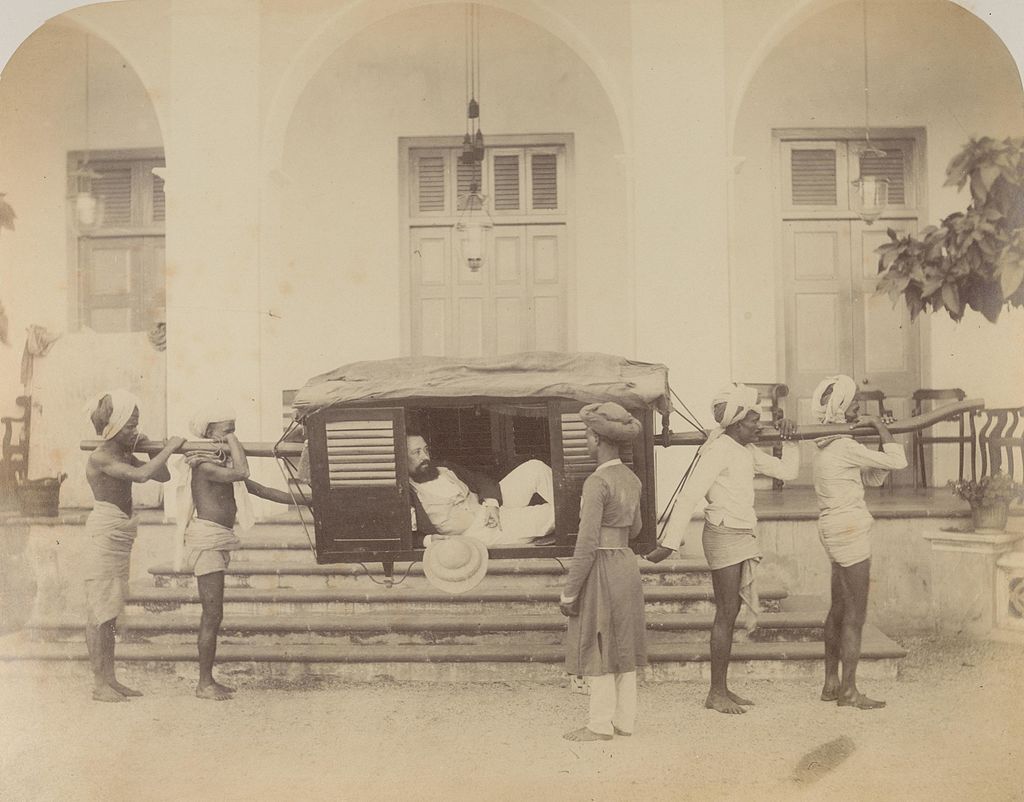
Erasure of old and cherished traditions speaks of the cultural impoverishment of a nation and its people, said Nirad C Chaudhuri in The Autobiography of an Unknown Indian.
What would Nebadhai, a small village in Duttapukur in West Bengal's North 24 Parganas district and BK Pal Avenue, a crowded locality in North Kolkata, have in common? The two, despite being opposites in terms of geography and social conditions, house the last survivors of two almost extinct professions – palanquin-bearers and mobile ear cleaners. Both the professions evoke a deluge of nostalgic memories of a bygone era, when life wasn't so fast as it is today. Sarojini Naidu had time and empathy for palanquin-bearers to write a beautiful poem on them. Rabindranath Tagore was moved by the synchronised movements of palanquin-bearers carrying a petite bride and ambling through lush green pastures and meadows of erstwhile Bengal. The palanquin-bearers were so respected during the regime of king Nimitosh Sen of Burdwan that they were accorded the importance, generally given to the lesser courtiers. Bankim Chandra Chatterjee's epochal novel Devi Chaudhrani immortalised the role of palanquin-bearers and Premendra Mitra of Bengal wrote a story in which a bride fell for one of the palanquin-bearers! The great Mohammed Rafi sang “Chalo re doli uthao, Kahaar...” as one of his last numbers in 'Jani Dushman.' Poet-lyricist Gopaldas Saxena 'Neeraj' tellingly wrote, “Jyon loot lein kahaar hi dulhan ki paalki / Haalat yahi hai aajkal Hindustan ki” (The way palanquin-bearers plunder the palanquin of the bride/ We're witnessing the same deplorable scenario in today's India). Bhupen Hazarika sang for them (palanquin-bearers) in Assamese, Bangla and Hindi.
The demand for palanquin-bearers was phenomenally high in the pre-Independence days and their ancestors were raking in a lot of moolah. In fact, palanquin-bearers were always present at social functions and ferried people from one village to another. Alas, where have they gone and where's the romanticism of that era disappeared?
As regards mobile ear cleaners, they too are languishing in oblivion, awaiting an occasional customer. The uber-refined Rehman of old Hindi movies suggested that Gurudutt accommodate the role of a champi-cum-ear cleaner in the film Pyaasa and Johnny Walker made it immortal. He went to Calcutta and observed mobile cleaners at Bow Bazar. He closely observed the way they cleaned their customers' ears. The mobile ear cleaners were great raconteurs and Munshi Premchand admitted that he got the idea of many of his characters from these mobile ear cleaners. There's an Avadhi adage that only two people have the knowledge of the world: A barber and a mobile cleaner. These two species are indeed all-knowing. They're full of interesting anecdotes to tell you with necessary spices from their ends. Whose daughter has eloped with whom and whose mother-in-law beats her daughter-in-law and gets beaten in turn, all amusing pieces of information can be had from a barber and a mobile cleaner. And more often than not, their stories have an iota of truth in them. They're the BBC of their villages. A mobile ear-cleaner literally gives you an earful and stuffs your ear-drums with his wisecracks. He'd also analyse your character on the basis of the size of your ears and stun you with his General Knowledge that Mahatma Gandhi had pretty big ears, a sign of wisdom and greatness like that of Lord Ganesha! Won't you be mightily impressed by his deep knowledge of people and places? In The City of Joy (French: La Cite de la Joie), the legendary Frenchman Dominique Lapierre described how enlightened he became when he went to a mobile ear-cleaner in the backwaters of West Bengal. He found him to be a polymath, a know-it-all. From elections to ecology, he talked on all subjects under the sun, moon and the boundless sky with the authority of an erudite scholar, observed the French novelist. But sadly, nowadays, there's a proliferation of mobiles that are sure to damage your ear-drums and what not! Times have changed. Haven't they? Extreme urbanisation has robbed us of our nostalgic cultural resplendence, reminders and remnants.
Sumit Paul is a regular contributor to the world’s premier publications and portals in several languages